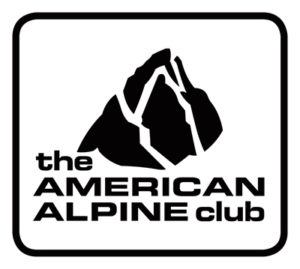Mount Washington Valley Climate Change Case Study
PROJECT TITLE
Assessment of the Implications of Warming Winters for Ice Climbing Activities and Guides
NAME OF ORGANISATION
American Alpine Club
Snapshot
This project represents the first formal assessment of the implications of warming winters for ice climbing activities and guides, in form of a scientific study.
- The authors assess historical climbing and weather conditions, simulate future climbing season length using a suite of climate models, and assess the implications of different simulations for ice climbing guides based on results of a survey and focus group.
- Results of this mixed-methods approach are useful for adaptation planning in the Mount Washington Valley, in New Hampshire, USA and other areas. In this region, winters have warmed faster than summers and are projected to warm by 3°C to 7°C by 2100.
- As ice climbing has a significant imprint on the culture and economy of the Mount Washington Valley, projected changes in winter conditions and potential limits to adaptation calls the future of regional festivals, businesses, and guiding companies into question.
- This study encourages meaningful local adaptation through institutionalized awareness (training) of climate impacts and aggressive climate policy measures.
View of MPA Assessor
The study of warming winters in the Mount Washington Valley provides rich insights, including facts, figures and data, for the need to mitigate and adapt to climate change. By highlighting the changing ice climbing conditions on the local level, a connection to the global climate agenda can be made. It is highly interesting to read about the different adaptation strategies of local guides.
Project Objectives and Vision
A project started in 2017 and concluded in 2023 through the publication, this study represents the first formal assessment of the implications of warming winters for ice climbing activities and guides. The research team assesses historical climbing and weather conditions, simulates future climbing season length using a suite of climate models, and assesses the implications of different simulations for ice climbing guides based on results of a survey and focus group. Results of this mixed-methods approach are useful for adaptation planning in the Mount Washington Valley and other areas.
The goal of this study was to assess the impacts of climate change on ice climbing routes and guides in the Mount Washington Valley, NH, USA, an area of historical and contemporary importance for ice climbing. In this region, winters have warmed faster than summers and are projected to warm by 3°C to 7°C by 2100. The summit of Mt. Washington has recorded high quality alpine weather observations since 1932, with monthly temperature trends point to warming consistent with the surrounding region.
This study advances understanding of the relationship between warming winters, ice conditions, and guiding activities. Meaningful policies taken to mitigate global warming will help preserve the meteorological conditions necessary for ice climbing. However, even with aggressive mitigation some level of climate impact will occur. The project team sees a need to institutionalize awareness of climate impacts and potential adaptation strategies within guide training methodologies. To date there have been few studies examining the impacts of climate change for ice climbing, though warmer winters imply potentially significant consequences for the persistence of seasonal ice flows. Guides are adapting to changes in season length, hazards, and crowding by drawing on their local expert knowledge and diverse climbing skills. Sensitivity and adaptive capacity to changes amongst the guiding community is differentiated according to guides’ level of knowledge and skill, their guests’ interests, and their respective business model. This study encourages guides to seek current information conditions reports for climbs, instead of relying on historical guidebooks.
Notes
Funding for this research was provided by the American Alpine Club, the Petzl Foundation, and Black Diamond Equipment. Additionally, J.Voorhis was supported by a National Geographic Young Explorer’s grant, G.McDowell was supported by a Banting Postdoctoral Fellowship, and E.Burakowski was supported by NSF #1832959.
A documentary film “Freeze:Thaw” has been produced in coordination with the study and will be released in due course.
Please refer to the recent UIAA article on the subject.
Contact Details, Discover More & Support
UIAA Mountain Protection Award Nominees


